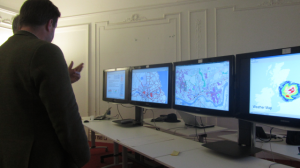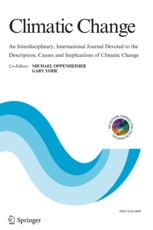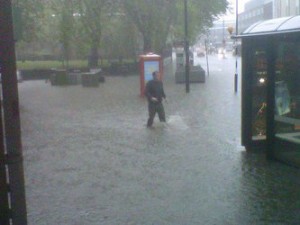Researchers from CESER (Claire Walsh, Richard Dawson, Stephanie Glendinning, Vassilis Glenis) in collaboration with researchers from Centre for Knowledge Innovation Technology and Enterprise and Newcastle City Council have recently published a paper which introduces the concept of a ‘Decision Theatre’ and describes how this approach was tested by co-designing, with a range of stakeholders, two events to identify current vulnerabilities of the city of Newcastle upon Tyne to a storm event and to investigate the effectiveness of adaptation options to surface water flooding. Based on these ‘proof of concept’ events, CESER along with other researchers at Newcastle University are considering are more permanent research and engagement facility for exploring and understanding collaborative decision-making and public engagement.
Walsh CL; Glendinning S; Dawson RJ; England K; Martin M; Watkins CL; Wilson, R; Glenis V; McLoughlin A; Parker D. 2013. Collaborative platform to facilitate engineering decision-making. Engineering Sustainability 166, ES2: 98-107.
The full paper can be downloaded at: HERE.
This paper is in a special issue of Engineering Sustainability on ‘Participatory Planning’ which is available on the journal’s website.









